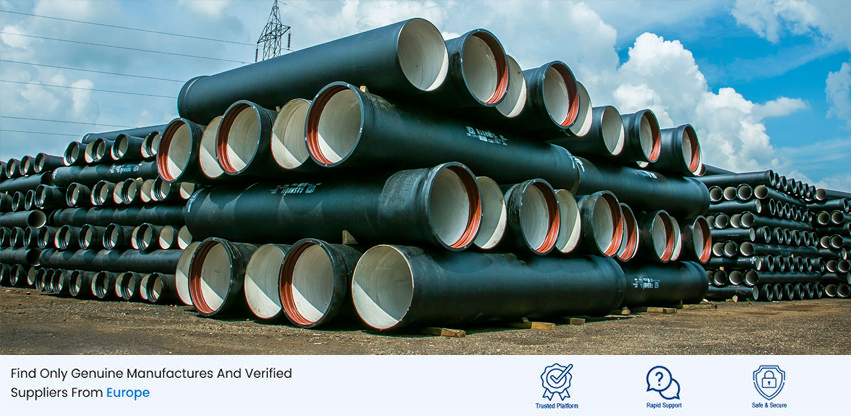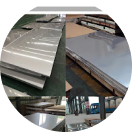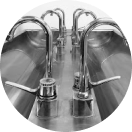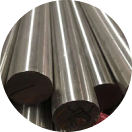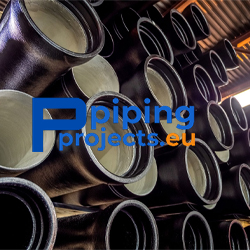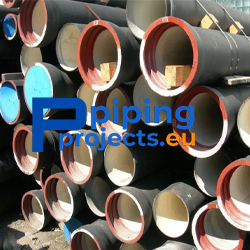Ductile Iron Pipe Manufacturers, Suppliers & Exporters in Europe - PipingProjects.eu
PipingProjects.eu is one of the leading Ductile Iron Pipe Manufacturer in Europe. We specialize in providing high-quality Ductile Iron Pipes that meets the various application and uses of customers. As a trusted Ductile Iron Pipe Supplier in Europe we supply top-notch quality Ductile Iron Pipe to various countries globally. Our High- quality Ductile Iron Pipe ungeroes various testing such as Tensile Testing, Chemical Composition Analysis, Hydrostatic Pressure Testing and others so that our clients recieve premium quality Ductile Iron Pipes .
What are Ductile Iron Pipe (DIP)?
Ductile Iron Pipe (DIP) is a solid and flexible type of cast iron pipe. It is known for its durability, flexibility, and high strength. Ductile iron contains iron, carbon, and small amounts of other elements. Graphite spheres are formed through a unique treatment process, making the iron more shapeable. This creates a pipe material that can handle high-pressure situations, is resistant to corrosion, and is easy to install due to its adaptability and strength. Because of these qualities, it is commonly used in wastewater systems, Water Supply and Distribution, Natural Gas Distribution, Fire Protection Systems in industries and other infrastructure projects.
Top leading Manufacturing Companies
How are Ductile Iron Pipes installed?
- Ductile iron pipes can be installed in different ways depending on the project and site conditions. Some standard methods include open-cut trenching, where pipes are placed in excavated trenches and then filled in, and horizontal directional drilling (HDD), a trenchless method suitable for sensitive areas or areas with existing infrastructure. Another method is slip lining, where a smaller pipe is inserted into an existing one for rehabilitation purposes.
- During installation, factors like soil conditions, pipe alignment, jointing methods, and adherence to regulations are carefully considered. Ductile iron pipes are versatile and can be installed in various ways to meet the needs of different projects, ensuring reliable performance in water and wastewater transmission systems, sewer systems, and other applications.
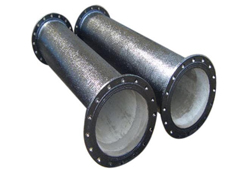
Ductile Iron Pipe
Ductile Iron Pipe - Specifications
- Product : Ductile Iron Pipe
- Wall Thickness : 1/8″NB TO 48″NB IN
- Outer Diameter : Upto 355.60 mm
- Length : Upto 14 mtr
- Standards : JIS, AISI, ASME, ASTM, AMS, GB, DIN, EN, GOST
- End : Plain End, Bevelled End
- Grades : T91 - P91

Trusted
Supplier

Genuine
Product

Easy
purchase
Difference Between Ductile Iron Pipe & Steel Pipe?
- Ductile iron and steel pipes are different materials with unique characteristics, influencing their suitability for different applications. Ductile iron pipes, manufactured from an iron alloy with added magnesium, boast enhanced flexibility and durability. This quality makes them particularly well-suited for water and wastewater systems where resistance to breakage and corrosion is crucial.
- In contrast, steel pipes, usually composed of carbon steel, offer high strength and are favoured in applications demanding robustness under high pressure or extreme temperatures. Despite their shared durability and corrosion resistance, ductile iron pipes are often chosen for their cost-effectiveness and ease of installation due to their lighter weight and more straightforward jointing methods.
- Steel pipes excel in situations requiring superior strength and resilience to challenging conditions. The selection between ductile iron and steel pipes hinges on specific project needs, weighing factors such as cost, installation convenience, and performance in changing environmental conditions.
What is the lifespan of Ductile Iron Pipe?
Ductile iron pipes are known to be durable, often lasting over 50 years or more. The lifespan may differ depending on factors like the surroundings, soil conditions, and the pipes used. The proper installation, maintenance, and following recommended practices can also affect how long the ductile iron pipes will last. In many instances, these pipes have proven to be highly durable and resistant to corrosion, which contributes to their extended use in water distribution systems, wastewater conveyance, and other applications.
How are Ductile Iron Pipe tested for quality?
We are a leading Ductile Iron Pipe Supplier in Europe. Our Ductile Iron Pipe undergoes various testing so that our clients recieve top quality Ductile Iron Pipe .
- Visual Inspection:
Pipes are visually inspected for surface irregularities, casting defects, and other visible imperfections.
- Dimensional Checks:
Precise measurements ensure the pipes meet specified dimensional requirements, including diameter, length, and wall thickness.
- Hydrostatic Pressure Testing:
Pipes are subjected to hydrostatic pressure tests to evaluate their ability to withstand internal pressure. This ensures the pipes are free from leaks and can safely handle the fluid pressure.
- Tensile Testing:
Samples are taken from the pipes to assess their tensile strength, yield strength, and elongation properties. This helps determine the material's overall mechanical strength.
- Impact Testing:
The impact resistance of ductile iron is assessed through testing, ensuring the material can withstand sudden loads without fracturing.
- Corrosion Resistance Testing:
Ductile iron Pipes may undergo corrosion resistance tests to evaluate their ability to withstand corrosive environments, ensuring durability over their expected lifespan.
- Coating Inspection:
The protective coating, often cement mortar lining, is inspected to ensure it adheres properly to the pipe surface, providing effective corrosion resistance.
Ductile Iron Pipe Weight Chart
Explore our wide Ductile Iron Pipe Weight Chart for precise specifications, ensuring accuracy and quality us a trusted Ductile Iron Pipe Manufacturer in Europe.
Weight Chart of Ductile Iron Pipe
| Nominal Size Inches |
Thickness Class |
Pipe (Pounds Per Foot) |
Gallons Held (Per Foot) |
Water (Pounds Per Foot) |
Total (Pounds Per Foot) |
| 3 |
51 |
10.1 |
0.45 |
3.8 |
13.9 |
| 4 |
51 |
12.7 |
0.70 |
5-9 |
18.6 |
| 6 |
50 |
18.2 |
1.60 |
13.4 |
31.6 |
| 8 |
50 |
25.8 |
2.86 |
23.9 |
49.7 |
| 10 |
50 |
33.9 |
440 |
36.7 |
70.6 |
| 12 |
50 |
43.2 |
6.32 |
52.7 |
95.9 |
| 14 |
50 |
55.1 |
8.51 |
711 |
126.2 |
| 16 |
50 |
64.7 |
11.14 |
93.0 |
157.7 |
| 18 |
50 |
745 |
14.12 |
117.9 |
192.4 |
| 20 |
50 |
84.8 |
17.45 |
145.7 |
230.5 |
| 24 |
50 |
106.6 |
25.17 |
210.1 |
316.7 |
| 30 |
50 |
1393 |
39.10 |
326.4 |
465.7 |
| 36 |
50 |
182.6 |
56.38 |
740.7 |
653.3 |
| 42 |
50 |
229.8 |
76.46 |
638.3 |
868.1 |
| 48 |
50 |
828.7 |
100.00 |
834.8 |
1117.5 |
| 54 |
50 |
351.1 |
128.61 |
1056.2 |
1407.3 |
Various Types of Ductile Iron Pipe We Supply
PipingProjects.eu is a leading Ductile Iron Pipe Manufacturers in Europe. We supply different types of Ductile Iron Pipe to meet diverse industrial needs with superior quality and precision.
What are the main Advantages of using Ductile Iron Pipes?
- Ductile iron pipes offer many advantages, making them popular for various applications. Their inherent strength and durability contribute to an extended service life, often exceeding 50 years. The tensile properties, derived from adding magnesium during manufacturing, provide flexibility and resistance to breakage, making these pipes well-suited for handling dynamic loads and withstanding ground movement.
- Additionally, ductile iron pipes exhibit excellent corrosion resistance, making them ideal for water distribution systems and sewage networks where exposure to changing environmental conditions is inescapable. Their versatility, ease of installation, and cost-effectiveness further enhance their appeal for infrastructure projects.
- Moreover, ductile iron pipes are known for their ease of installation. Their lighter weight than alternative materials facilitates handling and transportation, reducing installation time and costs. The pipes can be easily cut, joined, and configured to suit specific project requirements.
- The various jointing methods available, such as push-on joints and mechanical joints, add to the installation flexibility. These attributes collectively contribute to efficient and cost-effective deployment in water and wastewater systems, making ductile iron pipes a reliable and valuable choice for infrastructure development.
Ductile Iron Pipe Mechanical Property
Mechanical Property of Ductile Iron Pipe with tensile elongation and hardness mention below.
Mechanical Property of Ductile Iron Pipe
| Properties |
Ductile Iron Pipes |
| Elongation at Break |
10% Max |
| Tensile Strength |
Min. 420 MPa |
| Elastic Co-efficient |
1.7 X 104 Kg/mm2 |
| Hardness |
230 BHN |
| Bending Strength |
Over 50 Kg/m3 |
| Density |
7050 Kg/m2 |
| Yield Strength |
300 MPa |
What types of coatings are applied to Ductile Iron Pipe ?
Ductile Iron Pipe is produced in seven steps. It manufactures a wide range of shapes, goods, and parts, ranging from Ductile Iron Pipe We are a top Ductile Iron Pipe Supplier in Europe and other cities in Europe.
- Primer Coat : The initial layer applied is usually a primer coat that helps the following coatings stick better. Epoxy-based primers are often chosen for their ability to resist corrosion and create strong bonds.
- Intermediate Coat: : An intermediate coat can further improve corrosion resistance and provide extra protection.
Epoxy or polyurethane-based intermediate coats are commonly selected for their toughness and chemical resistance.
- Zinc Coating : Sometimes, a zinc coating may be applied as an extra layer to offer galvanic protection against corrosion.
This zinc layer acts as a sacrificial anode, corroding instead of the ductile iron substrate.
- Topcoat : The final layer, the topcoat, is applied to shield the pipe from environmental factors and UV radiation and for aesthetic purposes.
Polyethylene, polyurethane, or fusion-bonded epoxy (FBE) topcoats are frequently used due to their durability and ability to withstand weather conditions.
